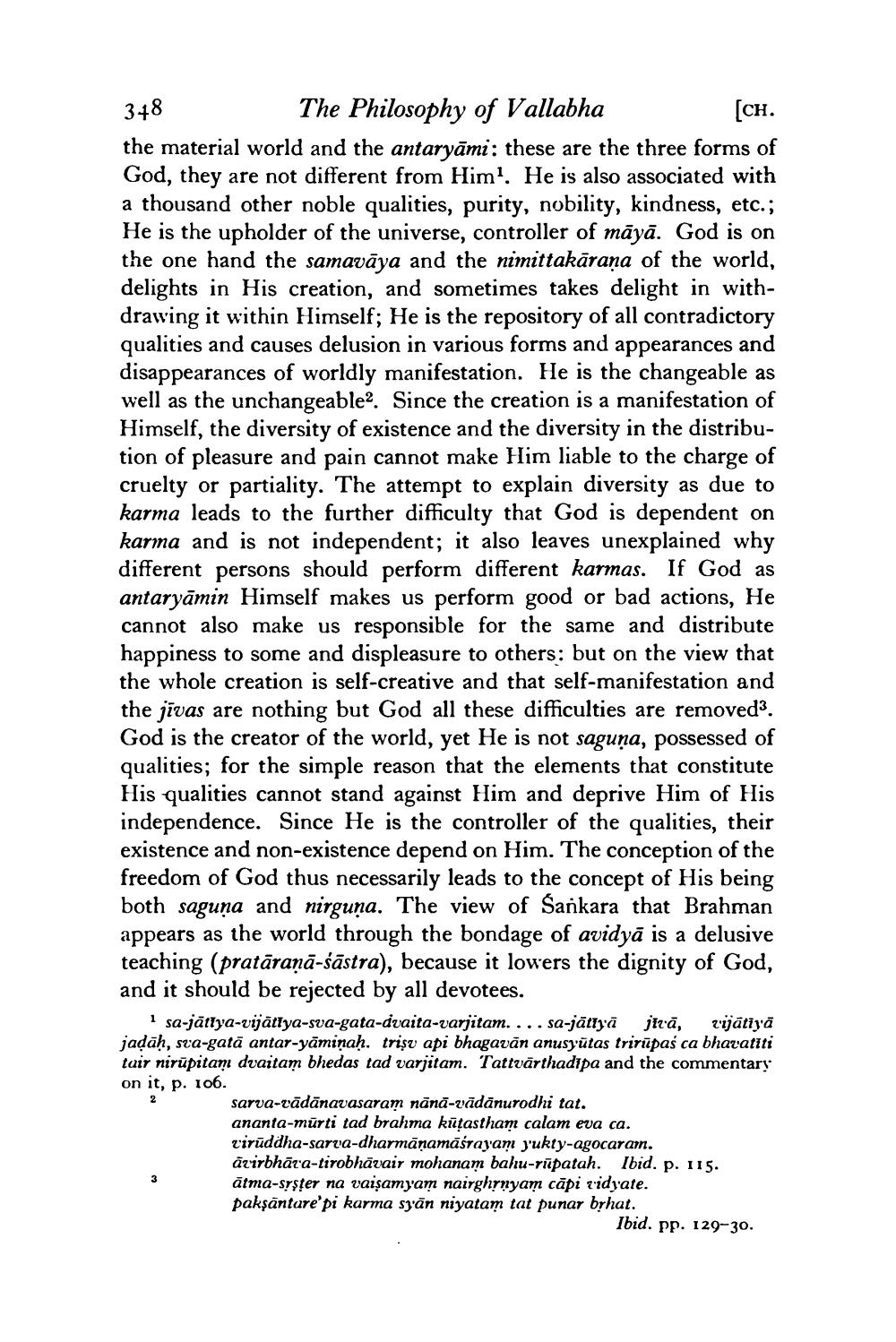________________
348
The Philosophy of Vallabha
[CH. the material world and the antaryāmi: these are the three forms of God, they are not different from Him? He is also associated with a thousand other noble qualities, purity, nobility, kindness, etc.; He is the upholder of the universe, controller of māyā. God is on the one hand the samavāya and the nimittakārana of the world, delights in His creation, and sometimes takes delight in withdrawing it within Himself; He is the repository of all contradictory qualities and causes delusion in various forms and appearances and disappearances of worldly manifestation. He is the changeable as well as the unchangeable. Since the creation is a manifestation of Himself, the diversity of existence and the diversity in the distribution of pleasure and pain cannot make Him liable to the charge of cruelty or partiality. The attempt to explain diversity as due to karma leads to the further difficulty that God is dependent on karma and is not independent; it also leaves unexplained why different persons should perform different karmas. If God as antaryāmin Himself makes us perform good or bad actions, He cannot also make us responsible for the same and distribute happiness to some and displeasure to others: but on the view that the whole creation is self-creative and that self-manifestation and the jīvas are nothing but God all these difficulties are removed3. God is the creator of the world, yet He is not saguņa, possessed of qualities; for the simple reason that the elements that constitute His qualities cannot stand against Him and deprive Him of His independence. Since He is the controller of the qualities, their existence and non-existence depend on Him. The conception of the freedom of God thus necessarily leads to the concept of His being both saguna and nirguna. The view of Sankara that Brahman appears as the world through the bondage of avidyā is a delusive teaching (pratāraņā-śāstra), because it lowers the dignity of God, and it should be rejected by all devotees.
sa-jättya-vijātiya-sva-gata-dvaita-varjitam. ... sa-jātīgā jirā, vijātīyā jadah, sza-gatā antar-yāminah. trişu api bhagavān anusyūtas trirūpas ca bhavatiti tair nirūpitam dvaitam bhedas tad varjitam. Tattvärthadipa and the commentary on it, p. 106.
sarva-vādānavasaram nānā-vādānurodhi tat. ananta-mūrti tad brahma kūțastham calam eva ca. viruddha-sarva-dharmānamāśrayam y'ukty-agocaram. āzirbhāra-tirobhāvair mohanam bahu-rūpatah. Ibid. p. 115. ātma-syster na vaişamyam nairghmnyam capi ridyate. pakşantare' pi karma sy'ān niyatam tat punar brhat.
Ibid. pp. 129-30.




